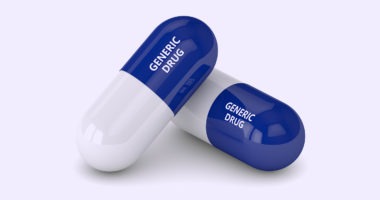Patent Showdown Between Innovator- and Generic-Drug Companies: US Supreme Court Rules in Favor of IPR
In a ruling that impacts patent challenges between innovator-drug companies and generic-drug companies, including biosimilar developers, the US Supreme Court has ruled that the inter partes review (IPR) system is constitutional. So what are the implications to the pharmaceutical industry?
IPR is an administrative patent-challenge system that has come under criticism by the innovator-drug industry that argues that it goes beyond its original purpose to provide a timely and cost-effective alternative for litigating the validity of patent claims by creating an additional or supplemental patent-challenge mechanism. So what is the impact? DCAT Value Chain Insights examines the ruling and what it means for innovator- and generic-drug companies.
Inside the ruling
Patent challenges are common between innovator and generic-drug companies, including biosimilar developers. An issue of topical importance overall in patent litigation was the US Supreme Court‘s recent review of the constitutionality of the US Patent and Trademark Office’s (USPTO) inter partes review (IPR) system, an administrative patent-challenge system that was created by the America Invents Act of 2011. IPR is a proceeding conducted by USPTO’s Patent Trial and Appeal Board (PTAB) to review the patentability of one or more claims of an issued patent based on obviousness. It was intended to provide timely and cost-effective alternatives to litigating the validity of patents in federal district courts, but the use of IPR has come under debate, especially since PTAB uses the “broadest reasonable interpretation” to review claims instead of the “plain and ordinary meaning” standard used by the courts (1). IPR presents a way for generic-drug companies, including biosimilar developers, to litigate the validity of patents protecting prior to the submission of their applications and a mechanism that provides a lower burden of proof as would be required under district court proceedings (1).
In a 7-2 ruling in the case of Oil States v. Greene’s Energy ruled cancellation of patent claims in IPR does not violate either Article III of the US Constitution, which establishes the judicial branch of the federal government, or the Seventh Amendment of the US Constitution, which guarantees a jury trial for civil cases in the federal courts. In the case, Oil States argued that IPR was unconstitutional by asserting that actions to revoke a patent must be tried in an Article III court before a jury.
In responding to the ruling, the generic-drug industry supported the ruling. “This is a win for patients who depend on continued access to safe, effective and affordable generic and biosimilar medicines,” said Jeff Francer, Senior Vice President & General Counsel of the Association for Accessible Medicines (AAM) (formerly the Generic Pharmaceutical Association) in an April 24, 2018 statement. “IPR helps enhance patient access to generic and biosimilar medicines by providing a more efficient mechanism for determining whether the patents of brand-name drug manufacturers are valid.”
In an amicus brief filed in consideration for the US Supreme Court’s writ of certiorari to hear the case, the AAM put forth its case for the IPR system. Amicus briefs are legal documents filed in appellate court cases by non-litigants with a strong interest in the subject matter of a case to advise the court of relevant, additional information or arguments that the court might wish to consider. In that brief, the AAM said that “inter partes review is essential to the limited regulatory objective of eliminating invalid patents that block valuable products like low-cost generic medicines. None of the benefits of generic medicines can be realized, however, until after the brand-name manufacturer’s patent claims—even dubious ones—have been resolved. Delay in removing improperly awarded patents, therefore, leads to substantially higher drug costs to our [n]ation. A speedy and efficient mechanism to challenge improvidently granted patents is essential to the timely provision of generic and biosimilar medicines.”
In contrast, the innovator-drug industry has advocated against the IPR system. In a letter to the US Senate Judiciary Committee in March 2017, Jim Greenwood, chief executive officer of the Biotechnology Innovation Organization, outlined what he termed as “deficiencies” in the IPR process, including using IPR as an additional or supplemental patent-challenge mechanism rather than a substitute to district court proceedings as it was originally intended (1).
The US Supreme Court also issued another ruling on IPR in April 2018. In SAS Institute v. Iancu, the US Supreme Court held 5-4 that the PTAB “must address every claim the petitioner has challenged,” not just those for which the petitioner had demonstrated a reasonable likelihood that it would prevail. Previously, the PTAB instituted trials on only those claims for which it determined that the petitioner had demonstrated a reasonable likelihood that it would prevail.
Reference
1. M. Serebrov, “Biosimilars: Opportunities and Challenges in the US and EU,” DCAT Value Chain Insights, January 30, 2018.





